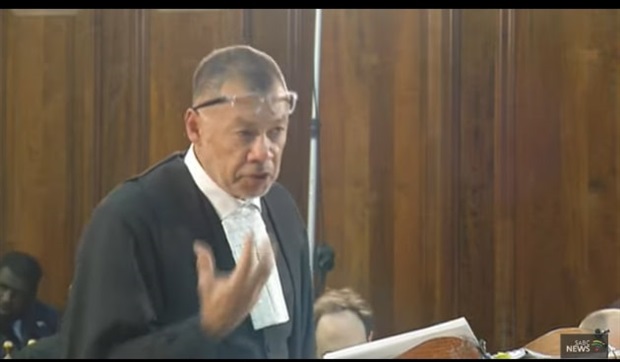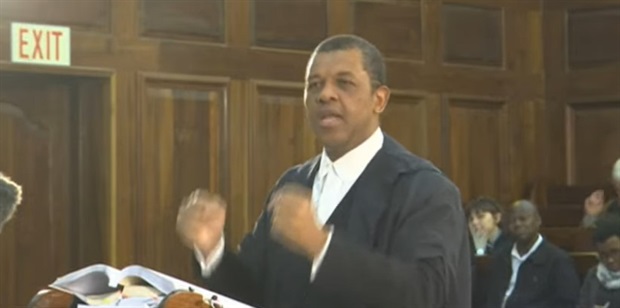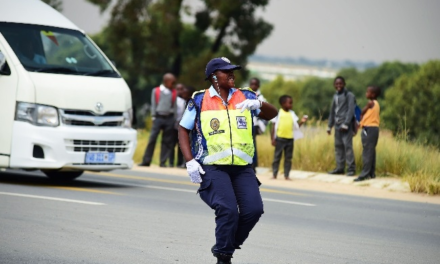15 Aug 19:04
Mpofu again points out that Zuma’s 15-month sentence comes to an end on 7 October, in seven weeks’ time.
– Karyn Maughan
15 Aug 19:03
Mpofu had previously argued that Zuma needs 24-hour day care that it wasn’t possible to provide him with in prison. He argues that Zuma could get such care in Nkandla – and denies that the fact that Zuma was moved there disproved his contention that the former president needed 24-hour day care. Zuma’s medic could stay with him 24 hours a day in Nkandla, Mpofu says.
– Karyn Maughan
15 Aug 18:52
Mpofu argues that Mphatswe received specialised medical reports from Zuma’s doctors. He argues that he and Mafa – who both supported Zuma’s release on medical parole – had made a “diagnosis” on his medical condition, whereas the board did not.
– Karyn Maughan
15 Aug 18:48
Mpofu makes reference to Mphatswe’s reference to a lesion in the colon – in his submissions recommending that Zuma be released. He says Mphatswe “must have felt that there was a terminal illness”.
– Karyn Maughan
15 Aug 18:44
Mpofu contends that Dr Mphatswe – the medical parole advisory board doctor who examined Zuma and recommended his release – “doubled up” as a correctional services doctor. This seems to be his response to Du Plessis’s argument that a specially appointed correctional services doctor needed to be part of the evaluation of Zuma’s medical parole application. Mpofu says it’s not a requirement of the Correctional Services Act that a terminally ill inmate must also have an irreversible condition that is deteriorating.
– Karyn Maughan
15 Aug 18:30
Mpofu now argues that there is no legal basis for contending that the Board’s recommendation on medical parole is binding on the National Commissioner.
– Karyn Maughan
15 Aug 18:18
Mphahlele, for DCS, says it is “not correct” that the Medical Parole Advisory Board’s recommendations are “final and binding” on the National Commissioner.
– Karyn Maughan
15 Aug 18:15
Engelbrecht concludes her argument. We will now hear replies from lawyers for the department of correctional services and Zuma.
– Karyn Maughan
15 Aug 18:13
The IRR: “A proper construction of such a [contempt] order will, the IRR submits, produce the conclusion that a person committed for contempt of court remains throughout their incarceration under the exclusive control of the court and so must serve out the period of detention laid down by the original decision of the court unless the court decides otherwise. If this is correct, there can be no question of granting such a detainee “parole”, whether medical or otherwise. Only the court can release such a person before the expiry of the term of detention for which the court order originally provided, on application by the detainee on good cause shown. What constitutes such cause will depend on the circumstances of the case, but a genuine willingness to testify and a true exhibition of contrition would be relevant factors for the grant of such an order.
“Consequently, once an order for Mr Zuma’s incarceration was made, the Department of Correctional Services was duty bound to hold him in custody until the full period of his detention had run its course.”
– Karyn Maughan
15 Aug 18:08
Plasket now asks Engelbrecht if the court can even decide on the arguments made by the IRR, given that the parties in this matter didn’t respond to them.
– Karyn Maughan
15 Aug 18:05
The IRR argues that: “At the heart of this submission is the proposition that a person who is detained for contempt of court falls beyond the compass of a “sentenced offender” who is potentially eligible for parole within the contemplation of the Correctional Services Act 111 of 1998 (the Act). If Mr Zuma is not a “sentenced offender”, the Commissioner, the IRR submits, could not properly have entertained the application for parole and the act of doing so would be jurisdictionally incompetent and void.” The judges are clearly unconvinced.
– Karyn Maughan
15 Aug 18:05
Dambuza tells Engelbrecht that her point “may be a bit shaky”. Makgoka adds that – once a person enters prison – that they are an inmate. Plasket adds that Engelbrecht’s argument seems to be a “lawyer’s point, divorced from the real world”.
– Karyn Maughan
15 Aug 18:01
Advocate Labuschagne, arguing for Afriforum, makes a very brief submission before handing over to Advocate Margaretha Engelbrecht SC, for the Institute of Race Relations. She argues that Fraser was not empowered to grant Zuma medical parole – because he was found guilty of civil contempt of court.
– Karyn Maughan
15 Aug 17:53
Plasket asks Du Plessis whether – if Zuma was unlawfully granted medical parole and was sent back to jail – the National Commissioner could consider the fact that he’d spent time on medical parole. After Du Plessis responds “yes”, Plasket says Matojane’s order that the time Zuma had spent on medical parole should not count as part of his sentence “could stand in the way” of this. Du Plessis says the SCA could address this.
– Karyn Maughan
15 Aug 17:51
Dambuza pushes back against Du Plessis’s argument and questions whether there is evidence that Zuma was implicated in Fraser’s allegedly unlawful conduct. Du Plessis responds that spending time on medical parole is significantly different from serving time in jail – and argues that Zuma benefitted from Fraser’s unlawful conduct.
– Karyn Maughan
15 Aug 17:42
Du Plessis says there is nothing to suggest that Matojane “got it wrong” when he ruled that Zuma was unlawfully released and ordered him back to jail – under the condition that the time he had spent on medical parole did not count as part of his sentence. Matojane found that Fraser had “mitigated” against the contempt sentence imposed by the Constitutional Court.
– Karyn Maughan
15 Aug 17:36
Du Plessis says that Zuma himself has never claimed to be terminally ill. He makes no such claims in his court papers.
– Karyn Maughan
15 Aug 17:31
Du Plessis says Fraser mistakenly thought he had the power to override the Board – but has failed to explain where he got that power from. Fraser “cannot be a law unto himself”, Du Plessis argues.
– Karyn Maughan
15 Aug 17:25
Du Plessis points out that the Board obtained specialist medical reports – after the submissions made by Mafa and Mphatswe – that provided an updated picture of Zuma’s health.
Fraser, he says, never looked at these reports. Like Jamie, Du Plessis argues that Fraser is “not a doctor” and couldn’t be expected to choose the early reports made by Mafa and Mphatswe over the final report made by the Board – which considered their submissions.
– Karyn Maughan
15 Aug 17:18
Du Plessis now refers the SCA to the Board’s decision, in which it confirmed that it had obtained multiple medical reports before reaching its conclusion, which stated: “From the information received, [Zuma] suffers from multiple comorbidities. His treatment has been optimised and all conditions have been brought under control. From the available information in the reports, the conclusion reached by the MPAB is that [Zuma] is stable and does not qualify for medical Parole according to the Act”.
– Karyn Maughan
15 Aug 17:13
Du Plessis argues that Fraser has failed to show that he had the power to override the Board’s decision not to recommend Zuma’s release on medical parole. Fraser “summarily dismissed the Board’s decision”.
– Karyn Maughan
15 Aug 17:04
Du Plessis says the Medical Parole Advisory Board found that Zuma was not terminally ill or physically incapacitated – as was required by the Correctional Services Act.
– Karyn Maughan
15 Aug 17:01
After Jamie completes his argument, Max du Plessis SC – for the Helen Suzman Foundation – takes the SCA through the steps required before medical parole can be granted. He stresses that it is required that medical parole applications must be referred to doctors who are specifically appointed by the correctional services department. Mafa did not fall within that category, he says.
– Karyn Maughan
15 Aug 16:59
Jamie wraps up by arguing that Dr LJ Mphatswe – the medical parole advisory board doctor who recommended that Zuma get medical parole – never said he was terminally ill or incapacitated. “It states, instead, that he has a complex medical condition which predispose (sic) him to unpredictable medical fallouts or events of high-risk clinical picture’. It talks about ‘the unpredictability of his plausible life-threatening cardiac and neurological events’.
Ultimately, Dr Mphatswe recommends medical parole because Mr Zuma’s ‘clinical picture presents unpredictable health conditions constituting a continuum of clinical conditions”. Jamie says it is “not clear what any of this means”.
He adds: “But Dr Mphatswe never states – expressly or implicitly – that Mr Zuma has a terminal illness, or that he is incapacitated. He has conditions that require management, but that is not the standard for medical parole.”
– Karyn Maughan
15 Aug 16:48
Jamie now read from the redacted report given by Dr LJ Mphatswe, the Board-appointed doctor, who stated that the former president has “a complex medical condition which predispose (sic) him to unpredictable medical fallouts or events of high-risk clinical picture”. While Mphatswe refers to the “unpredictability of his plausible life-threatening cardiac and neurological events”, Jamie contends that Mphatswe does not state that Zuma is terminally ill or incapacitated – which he says are requirements for medical parole.
– Karyn Maughan
15 Aug 16:44
We resume. Jamie argues that the conditions for release on medical parole require not only that an inmate has a terminal illness, but that this condition is irreversible – and has left the inmate in a condition where they are progressively deteriorating and unable to look after themselves.
– Karyn Maughan
15 Aug 16:02
Makgoka points out that there is a list of medical conditions that the Medical Parole Advisory Board is required to consider when making its decision. Jamie says there is no suggestion that it did not do so – and points out that the Board referred to the fact that Zuma suffered from multiple co-morbidities.
– Karyn Maughan
15 Aug 15:51
In response to questions from Plasket, Jamie says the regulations make it clear the National Commissioner can only grant medical parole following a positive recommendation from the medical parole advisory board.
– Karyn Maughan
15 Aug 15:48
Jamie now contends that Fraser is “clearly not a medical doctor” and has no medical expertise. He says it is therefore completely appropriate that the Board – as a body of medical experts – be tasked with determining whether an inmate qualifies for medical parole.
– Karyn Maughan
15 Aug 15:40
Dr LJ Mphatswe was sent to examine Zuma, on behalf of the medical parole advisory board. A redacted version of Mphatswe’s 23 August report, which Fraser attaches to his court papers, recommended that Zuma be placed on medical parole “with immediate effect because of the clinical picture that presents unpredictable health conditions”. That recommendation was overruled by the Board after it considered Zuma’s medical records and asked for further information.
– Karyn Maughan
15 Aug 15:32
Jamie says the Medical Parole Advisory Board was set up in the aftermath of Zuma’s former financial advisor Schabir Shaik being released on medical parole on the basis that he was terminally ill. Shaik remains in seemingly robust good health, a decade after that decision.
– Karyn Maughan
15 Aug 15:28
Jamie argues that Mafa’s application for Zuma’s medical parole was “irregular”. Dambuza says this was not the case that the DA made out and he agrees.
– Karyn Maughan
15 Aug 15:27
In the DA heads of argument, the party tracks the history of Zuma’s medical parole application: “On 28 July 2021 Mr Zuma’s physician, one Dr Mafa, applied for medical parole on MrZuma’s behalf.”
On 5 August 2021, Mr Zuma complained of chest pains and coughing. Later that day, he was transferred to the private Mediclinic Heart Hospital in Pretoria.
” He stayed there until he was released on medical parole. He never returned to prison.
On Thursday, 26 August 2021, and again on Saturday, 28 August 2021, the [Medical Parole Advisory] Board met, considered Mr Zuma’s application for medical parole and the various medical reports that had been submitted, and on both occasions decided not to recommend the granting of medical parole as it did not have sufficient information to reach a decision. Both times, the Board requested additional information”.
After getting that information, the Board recommended against Zuma getting medical parole.
– Karyn Maughan
15 Aug 15:25
Makgoka says that Mafa had the benefit of examining Zuma and could therefore make findings about his condition. Jamie says correctional services regulations require that medical parole application be supported by a report from a correctional services doctor.
– Karyn Maughan
15 Aug 15:18
Jamie contends that Mafa, the military doctor who Mpofu says found that Zuma was terminally ill, was not a disinterested medical practitioner. He was Zuma’s doctor, he argues.
– Karyn Maughan
15 Aug 15:11
The DA contends that “on the facts before the Commissioner [Fraser]”, Zuma is “neither terminally ill on incapacitated”. As a result, it contends, he did not meet the requirements for the granting of medical parole.
– Karyn Maughan
15 Aug 15:01
Advocate Ishmail Jamie SC, for the DA, denies that the parties in the case did not try to get confidential access to Zuma’s medical records for the judge hearing their challenge to the lawfulness of his medical parole.
He says that the DA’s position remains that, absent a positive recommendation from the medical parole board, the National Commissioner had no power to grant Zuma medical parole.
– Karyn Maughan
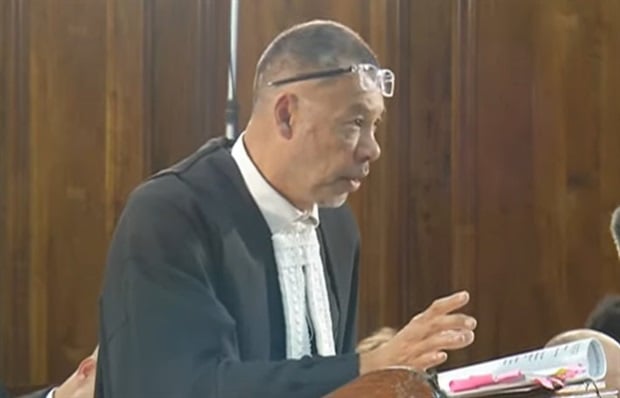
15 Aug 14:57
Mpofu argues that it would be “Draconian” for Zuma to be ordered to serve an additional 10 months under parole – which he contends would be the effect of a ruling that his time on medical parole did not count as part of his sentence.
– Karyn Maughan
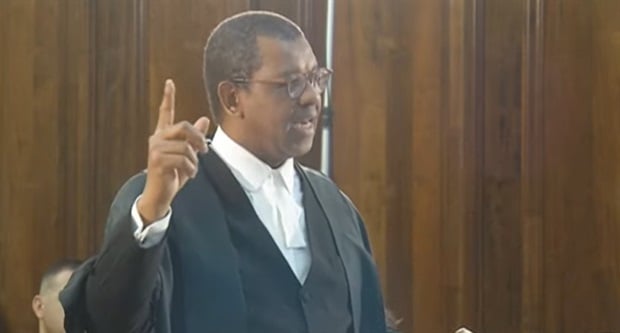
15 Aug 14:52
We have now moved to one of the most legally assailable aspects of the Matojane ruling: his order that the time that Zuma served on medical parole not be counted as part of his sentence.
Mpofu argues that this ruling is “repugnant” and amounts to Zuma being sentenced again.
– Karyn Maughan
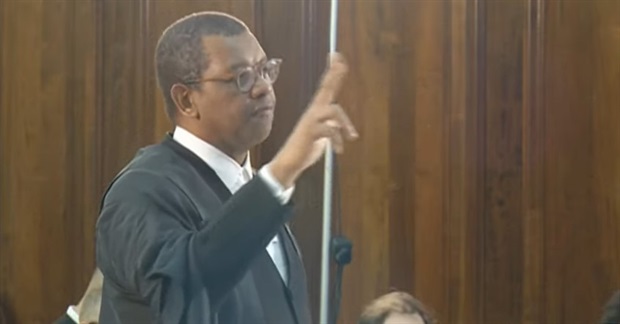
15 Aug 14:47
Mpofu argues that the primary reason justifying Zuma’s medical parole was the finding that he suffered from a terminal illness – an illness that he argues would require 24-hour care for the former president.
Such care is not available to Zuma in prison, Mpofu adds.
– Karyn Maughan
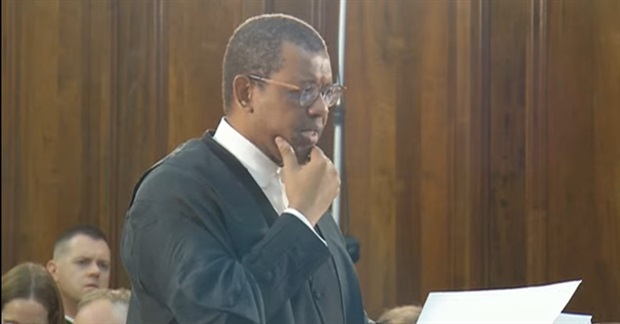
15 Aug 14:44
Makgoka questions whether the concerns raised by Mpofu in regard to the conditions under which Zuma was imprisoned are more of an issue about treatment than about parole.
– Karyn Maughan
15 Aug 14:41
Mpofu argues that sending Zuma back to prison will be like “throwing him to the wolves” because the head of prisons has made it clear that there are no facilities that could accommodate him.
– Karyn Maughan
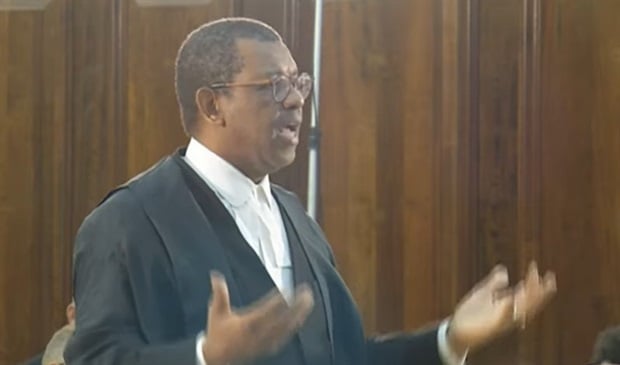
15 Aug 14:36
Makgoka interjects and says he struggles with the fact that Zuma, as a 79-year-old person, would be required to look after himself and make his own bed in prison.
– Karyn Maughan
15 Aug 14:34
Mpofu argues that Fraser was entitled to consider the “fact” that Zuma – as an ex-president – was “entitled” to receive 24-hour medical care.
Zuma is not like other people, he argues.
– Karyn Maughan
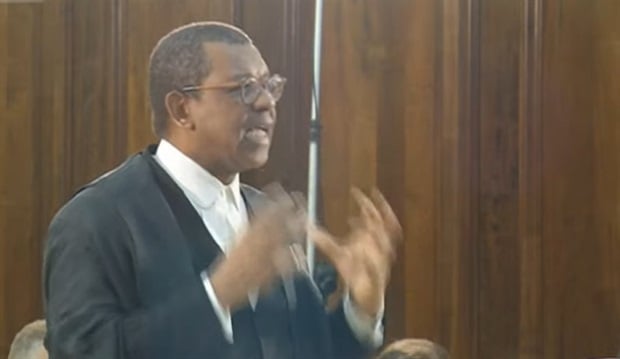
15 Aug 14:30
Mpofu: “Even if the accusations were true and given the recent change of guard, there is not even a shred of evidence to support that the decision on medical parole, if it was still a live issue, would not be taken lawfully by the Acting National Commissioner.
“In any event, any new decision would be based on the latest medical evidence. The August decision has no relevance to what may or may not happen when new evidence is placed before a new decision-maker. The Board itself may return a different decision upon revision.
“In short, the impugned August decision is old news and is likely to have no bearing on a new decision which the court may order to be taken. The application is also academic for that additional reason.”
– Karyn Maughan
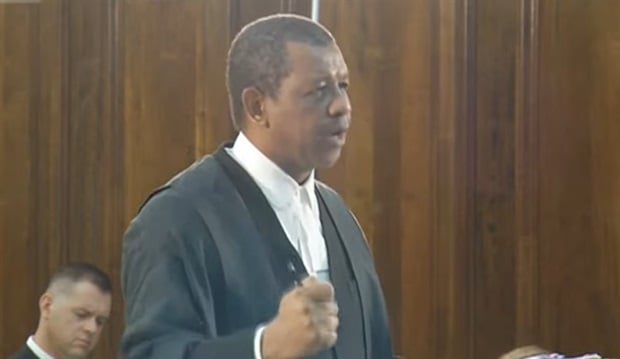
15 Aug 14:29
Mpofu says claims that Fraser acted with bias because he was Zuma’s former spy boss are “concocted” – but insists that these “half-baked” allegations do not apply to the current National Commissioner.
This is why, he argues, if Zuma’s medical parole is found to be unlawful, the National Commissioner can be asked to make a fresh determination on whether he should receive ordinary parole.
– Karyn Maughan
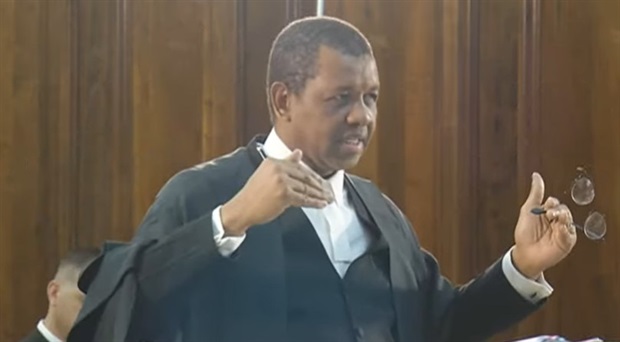
15 Aug 14:25
In response to questions from Makgoka about what was wrong with a judge being allowed to examine Zuma’s medical records, under the confidentiality regime proposed by the parties involved in this litigation, Mpofu contends that these parties should have gone to court to get an order that these documents could be looked at by a judge.
– Karyn Maughan
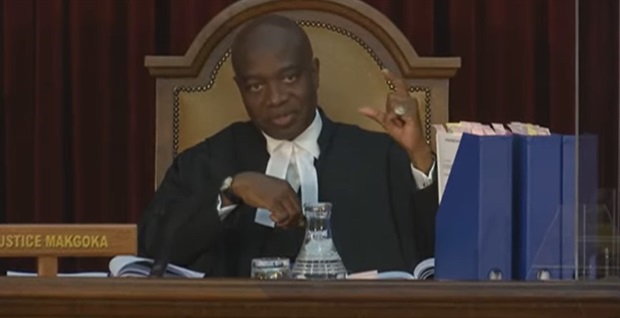
15 Aug 14:17
Mabindla-Boqwana responds by asking Mpofu why the court should be required to “read between the lines” on whether Zuma has a terminal illness or not.
Mpofu responds that Mafa has stated that Zuma had a terminal illness.
He also argues that the only reason that this terminal illness was bought under control, as he says was found by the Board, was because Zuma was being kept in a private hospital.
Zuma’s condition would have deteriorated if he had been forced to return to jail, Mpofu says.
– Karyn Maughan
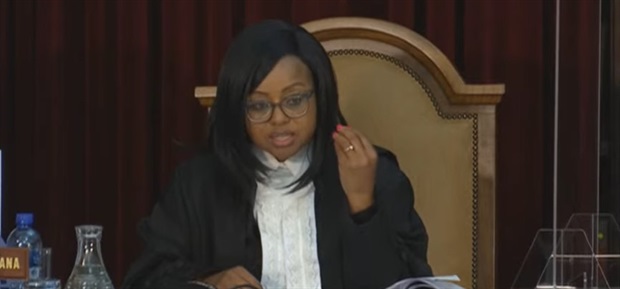
15 Aug 14:14
Mpofu argues that “nowhere” is there a report that says that Zuma does not suffer from a terminal illness.
He argues that a second doctor – sent by the medical parole advisory board – also effectively found that Zuma was terminally ill.
– Karyn Maughan
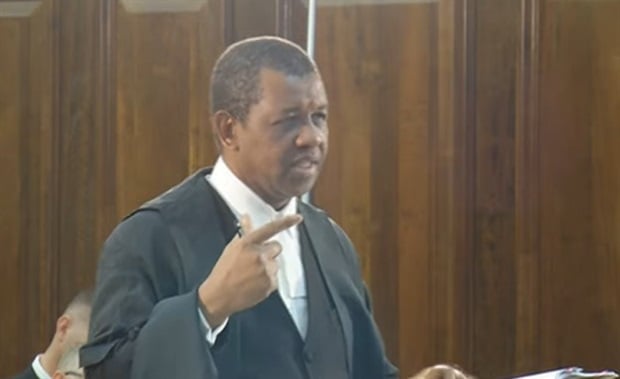
15 Aug 14:11
Fraser chose to overrule the medical parole board days after it found that Zuma did not qualify for medical parole, arguing, among other things, that he feared the same unrest that followed his imprisonment in July 2021, if the former president should die behind bars.
Following Zuma’s arrest for defying the Constitutional Court’s orders that he appear before the State Capture Inquiry and incarceration at the Estcourt Correctional Centre, Kwazulu-Natal and Gauteng were gripped by violent looting and destruction that left over 300 people dead.
– Karyn Maughan
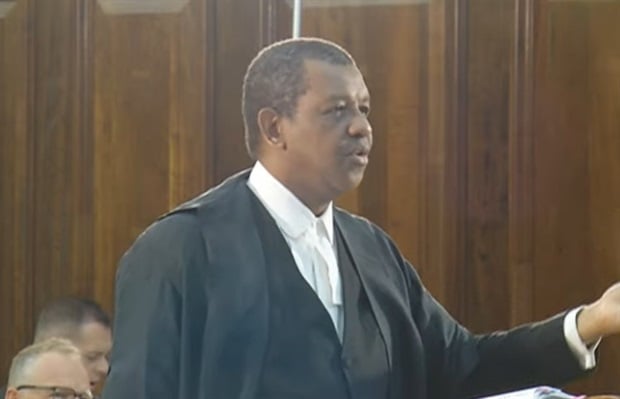
15 Aug 14:07
And we resume. Mpofu begins by contending that Zuma’s “frail” state would be a factor that would weigh against him re-offending.
– Karyn Maughan
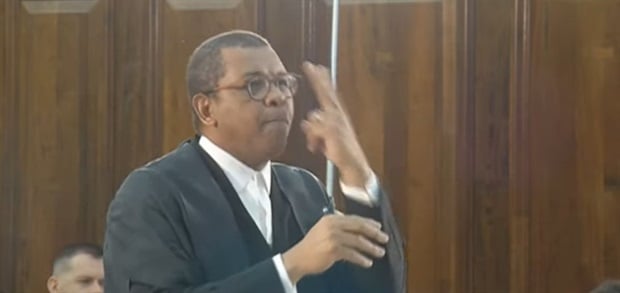
15 Aug 13:23
In heads of argument, Mpofu argues: “It is clear that the application has been brought in order to abuse the court for the political interests of the DA and HSF. In its political campaigns, the DA has made its goal to scandalise Mr Zuma’s medical condition by creating unnecessary political controversy over whether he has a terminal medical condition.
“Casting doubts and scandalising of Mr Zuma’s medical condition without any contrary medical evidence is an irresponsible abuse of the court. These respondents are using the Courts to harass Mr Zuma and to continue the political narrative that he has corruptly obtained an undeserved medical parole.
“Of course, this is done without any shred of evidence. Just to prove that the respondents do not care about the dignity of Mr Zuma, they specifically elected to seek the review without any knowledge of the medical records on which the medical parole was granted. Having conceded that they do not have a right to Mr Zuma’s medical records, these respondents nonetheless persisted with seeking orders that would require the disclosure of such medical records without a court order.”
– Karyn Maughan
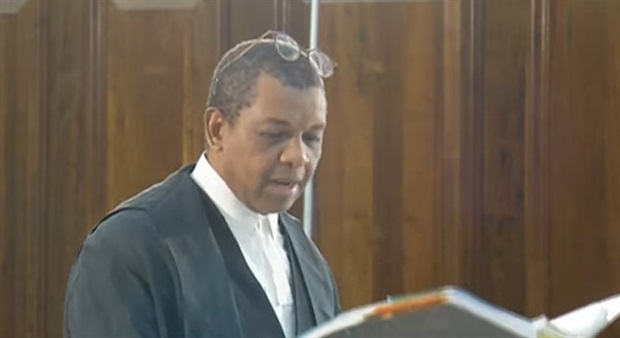
15 Aug 13:21
Mpofu argues that Zuma – like anyone else – is entitled to his constitutional rights.
Medical experts have “said that the man is suffering from a terminal disease”, he adds, before again contending that there is evidence that current prison facilities are not equipped to properly treat him.
– Karyn Maughan
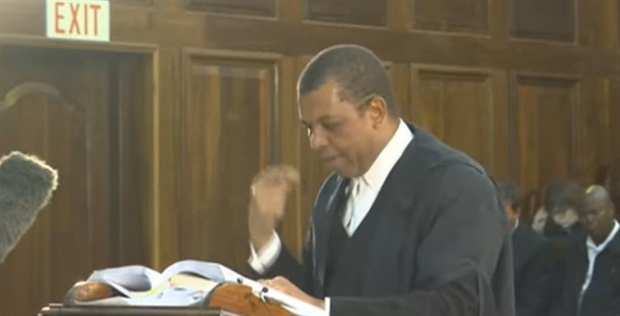
15 Aug 13:14
Mpofu says that Phaahla case in the Constitutional Court has found that “parole is a form of punishment”.
– Karyn Maughan
15 Aug 13:11
Mpofu appears to be arguing that the medical parole advisory board’s recommendation was required as part of the process that led to Zuma being granted medical parole – whether that recommendation was “positive or negative”.
But the more important part of the process, he argues, was that Zuma’s military doctor, Mafa, had stated that he had a “terminal illness or condition”.
– Karyn Maughan
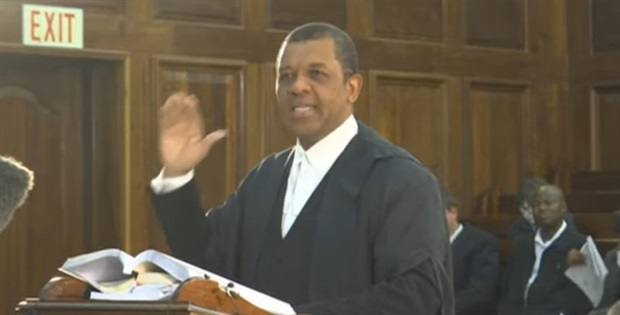
15 Aug 12:59
Mpofu now tries to argue that, if the medical parole advisory board can “override” the reports made by the doctors who recommended that Zuma be released on medical parole, Fraser (who is not a medical expert) should be allowed to override the Board’s conclusion that Zuma did not qualify for medical parole.
He contends that the Board’s decision – which was reached after it considered all Zuma’s medical records and sought additional information on them – was a “recommendation”, not a finding or a directive.
– Karyn Maughan
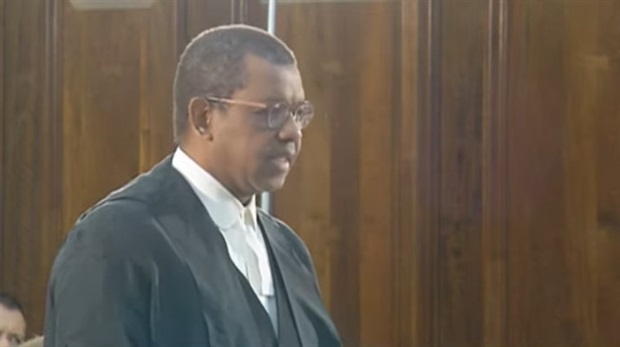
15 Aug 12:49
Crucial point from Mabindla-Boqwana: the medical parole board had full access to all of Zuma’s medical records and found that he did not qualify for release on medical parole.
While the courts and parties involved in this case do not have access to Zuma’s medical records, the Board did.
– Karyn Maughan
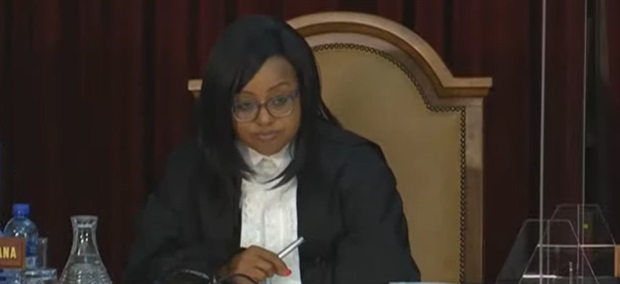
15 Aug 12:42
Mpofu argues that Fraser “is not a sangoma” and could not predict that his decision would be reviewed.
Dambuza responds that Fraser “does not need to be a sangoma” – he needed to explain his decision in a clear way, detailing what he considered.
– Karyn Maughan
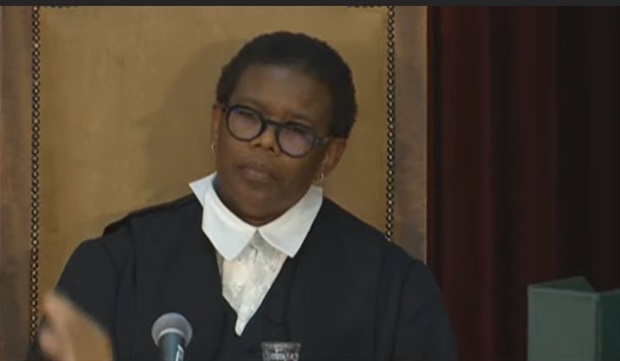
15 Aug 12:37
Mpofu argues that it is “common sense” that the redacted parts of Zuma’s medical records dealt with the “most sensitive” aspects of the “terminal illness that Dr Mafa says he suffers from”.
– Karyn Maughan
15 Aug 12:36
The DA, Helen Suzman Foundation and AfriForum had initially sought access to Zuma’s health records on a confidential basis.
When Zuma refused to grant their lawyers that limited access, the organisations agreed that they would accept a severely redacted record of Fraser’s decision.
DA leader John Steenhuisen later argued that the party was no longer seeking access to Zuma’s medical records, as it did not need them to prove that the decision to release him on medical parole was unlawful.
Under the provisions of the Correctional Services Act, the DA and HSF argue, medical parole can only be granted to an offender “suffering from a terminal illness or condition or if such an offender is rendered physically incapacitated as a result of injury, disease or illness so as to severely limit daily activity or inmate self-care”.
While Zuma had stated that he suffered from an unspecified “condition” that “carries significant risk to [his] life”, Steenuisen argued that he had failed “to assert that he has a terminal illness” or that he was incapacitated “as required by Section 79(1)(a) of the Correctional Services Act”.
“Mr Fraser’s failure squarely to state that Mr Zuma has a terminal illness or is physically incapacitated is telling,” Steenhuisen added.
Mpofu has now argued that Mafa had confirmed that Zuma suffered from a terminal illness or condition.
– Karyn Maughan
![<p></p><p>The DA, Helen Suzman Foundation and AfriForum had initially sought access to Zuma's health records on a confidential basis. </p><p>When Zuma refused to grant their lawyers that limited access, the organisations agreed that they would accept a severely redacted record of Fraser's decision.</p><p>DA leader John Steenhuisen later argued that the party was no longer seeking access to Zuma's medical records, as it did not need them to prove that the decision to release him on medical parole was unlawful.</p><p>Under the provisions of the Correctional Services Act, the DA and HSF argue, medical parole can only be granted to an offender "suffering from a terminal illness or condition or if such an offender is rendered physically incapacitated as a result of injury, disease or illness so as to severely limit daily activity or inmate self-care".</p><p>While Zuma had stated that he suffered from an unspecified "condition" that "carries significant risk to [his] life", Steenuisen argued that he had failed "to assert that he has a terminal illness" or that he was incapacitated "as required by Section 79(1)(a) of the Correctional Services Act".</p><p>"Mr Fraser's failure squarely to state that Mr Zuma has a terminal illness or is physically incapacitated is telling," Steenhuisen added. </p><p>Mpofu has now argued that Mafa had confirmed that Zuma suffered from a terminal illness or condition.</p><p>- Karyn Maughan </p><p><span style="font-size:0.75em;"></span><br /></p>](https://cdn.24.co.za/files/Cms/General/d/3855/9ec02499adb0401ea359087b81470237.jpg)
15 Aug 12:31
Mpofu argues, as Zuma did, that the absence of the former president’s medical records can only prejudice the parties who have successfully sought the invalidation of his medical parole.
– Karyn Maughan
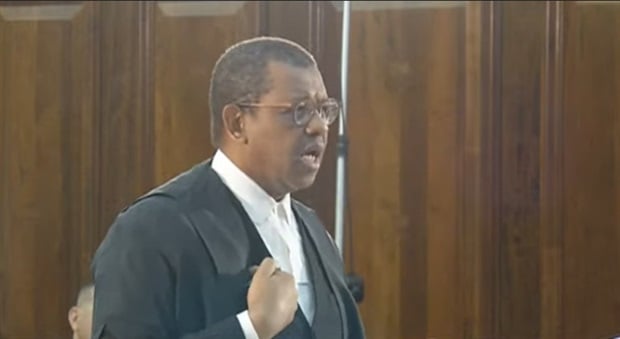
15 Aug 12:30
Zuma: “Without my medical records, it is impossible for the [Democratic Alliance] and its allies in this litigation to contend that the Commissioner [Arthur Fraser] acted unlawfully.
“It is equally so that a Court cannot find that there is a basis on which to review and set aside the decision of the Commissioner in the absence of essential facts…”
– Karyn Maughan
15 Aug 12:29
Karyn Maughan | Why Zuma’s ‘secret’ health records aren’t needed to overturn his medical parole
Jacob Zuma clearly believed that withholding his health records from the parties challenging his release on medical parole would devastate their court action. But, as Karyn Maughan writes, he was very, very wrong.
15 Aug 12:27
Mpofu argues that, because Zuma is a former head of state, his medical records are naturally classified.
Plasket interjects that the court knows the history of the case “and I’m not sure where you are taking me”.
– Karyn Maughan
15 Aug 12:23
Mpofu says it is “completely wrong” to say that. because Zuma’s medical records were not disclosed, the attempted appeals by him and the correctional services department should fail.
He contends that, if the DA/HSF/Afriforum should have applied for access to Zuma’s medical records if they wished to prove that Fraser’s decision was irrational.
He also confirms that Zuma threatened to sue the department if it disclosed his medical records.
– Karyn Maughan
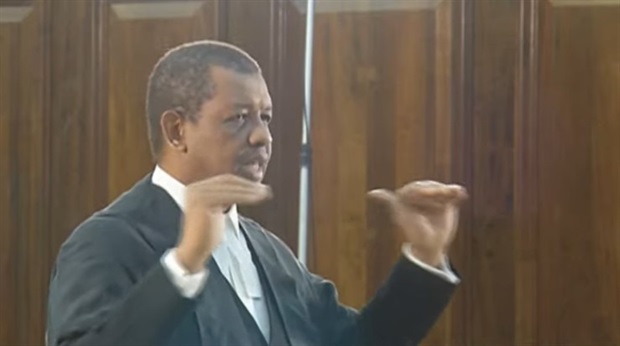
15 Aug 12:18
Plasket says expert opinions are worthless unless the court is able to access the information and evidence that led to the expert reaching his or her conclusion.
– Karyn Maughan
15 Aug 12:15
Dambuza interjects and says she does not understand Mafa’s submission. What exactly is he saying yes to, she asks?
Mabindla-Boqwana has also stressed that the issue is not just focused on whether the inmate has a terminal illness “which has deteriorated significantly” and left the inmate “unable to perform daily activities and self-care and is under full-time comprehensive medical care of his medical team”.
This last part is significant – and was the basis upon which Chris Hani killer Clive Derby-Lewis, who had stage 4 cancer, was initially denied medical parole.
– Karyn Maughan
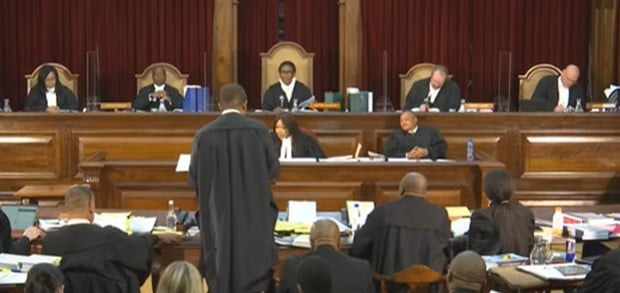
15 Aug 12:10
Mpofu now argues that it cannot be said that “nowhere” is it stated that Zuma is suffering from a terminal illness when there is a record of Mafa answering “yes” to a question about whether Zuma was “suffering from a terminal disease or condition that is chronic and progressive which has deteriorated significantly” and confirmed that he was “unable to perform daily activities and self-care and is under full time comprehensive medical care of his medical team”.
– Karyn Maughan
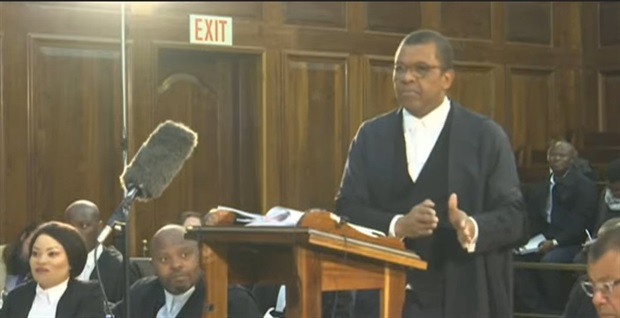
15 Aug 12:01
Mpofu: “The application is doomed to fail because it is based on a false foundation. All three respondents have disingenuously and deliberately approached the matter on the clearly incorrect premise that the impugned decision was based exclusively and solely on section 79 of the Act. However and in truth, the decision was based on ‘section 75(7) read together with section 79’.
“This attempt at pulling the proverbial wool over the eyes of the court must be frowned upon.
“The fact that the decision was mainly based on section 75(7), albeit read with section 79 for understandable reason, cannot be wished away, deceptively edited away or ignored. It is an inescapable fact. It has legal implications and it must be squarely confronted for what it is.”
– Karyn Maughan
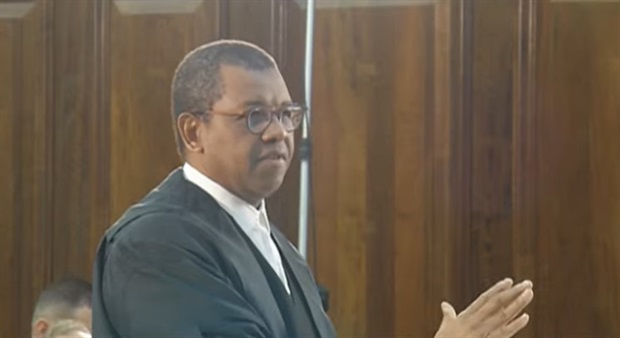
15 Aug 11:57
Mpofu contends that both sections 75(7) and 79(1) of the Correctional Services Act need to be read together.
– Karyn Maughan
15 Aug 11:50
Mpofu contends that Fraser’s decision to release Zuma was in terms of 75(7) of the Correctional Services Act – but Plasket points out that Fraser himself stated that his decision was made in terms of section 79 of that Act (which deals with medical parole) – and he is now stuck with that.
Mpofu then refers to a press statement issued by the department of correctional services, in which it stated that section 75(7) of the Act enabled the Commissioner to place an inmate serving less than two years in prison parole.
Zuma’s lawyers contend that Fraser’s decision was informed by both sections.
– Karyn Maughan
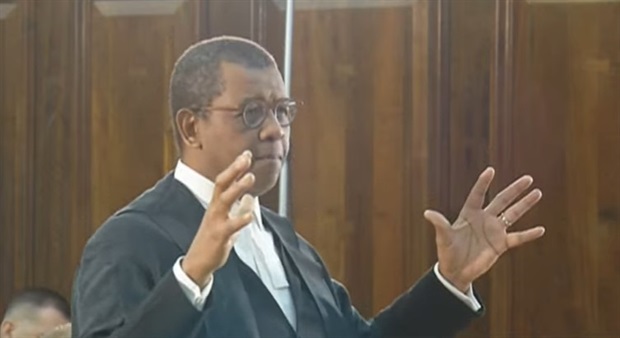
15 Aug 11:41
Suspended ANC secretart-general Ace Magashule is at the court.
He told eNCA that Zuma has a right like any other South African to appeal court rulings.
He said there is a feeling that the courts are being used to deal with Zuma and others.
Last week, Magashule lost his Constitutional Court bid to overturn his suspension from the ANC.
– Jan Gerber
15 Aug 11:41
Mpofu contends that there is a contradiction in Matojane’s ruling that Zuma’s medical parole was invalid – and further argues that the medical parole advisory board’s recommendation that Zuma did not qualify for medical parole has been “misrepresented”.
– Karyn Maughan
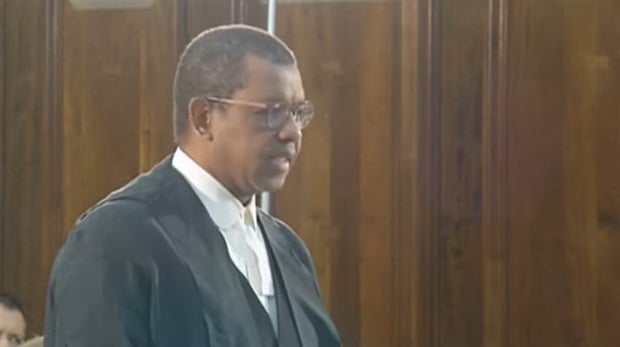
15 Aug 11:36
Mpofu says that the “human rights of the inmate” have “not been mentioned at all” and contends that this must be the court’s focus.
– Karyn Maughan
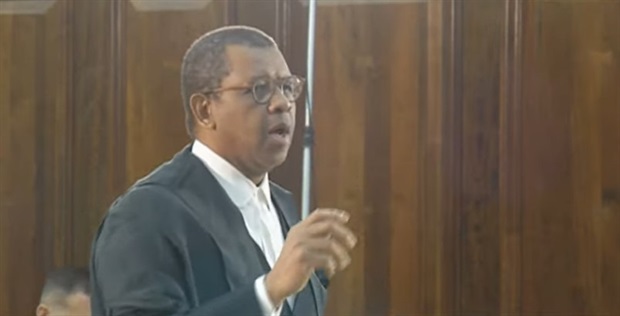
15 Aug 11:33
Jacob G Zuma Foundation spokesperson Mzwanele Manyi told eNCA there is a lot of evidence that Zuma qualified for medical parole.
“This is not hearsay, it is in black and white,” he said.
He alleged that the Medical Parole Advisory Board took a “political decision” not to recommend medical parole, and the former correctional services commissioner had to ensure that there is a lawful decision.
– Jan Gerber
15 Aug 11:13
Dambuza questions whether Fraser considered whether Zuma would re-offend, given that he continued to attack the judiciary and the courts after his release on medical parole.
Mphahlele responds that he did, and considered the fact that Zuma is “an elderly person”.
Dambuza: “So elderly people don’t re-offend?”
– Karyn Maughan
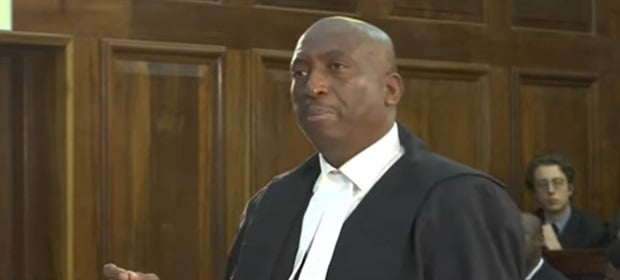
15 Aug 11:06
Department of Correctional Services: “Parole is a form of punishment which is served by an inmate within the system of community corrections in terms of Chapter VI of the Act74. Like any other offender who is serving his or her sentence in the community corrections system, the Second Appellant is subject to restrictive supervision conditions in terms of section 52 of the Act which will apply to him up until the expiry of his sentence.
“[Zuma] was not released to enjoy staying at home. He is still serving the sentence that was duly imposed by the Constitutional Court albeit under medical parole in the community corrections system. Suffering from a terminal disease does not imply that a person cannot talk.”
– Karyn Maughan
15 Aug 11:04
Mphahlele stresses that “parole itself is a punishment” and says that, should the time spent by Zuma on medical parole not count as part of his sentence, this would be “cruel” punishment.
– Karyn Maughan
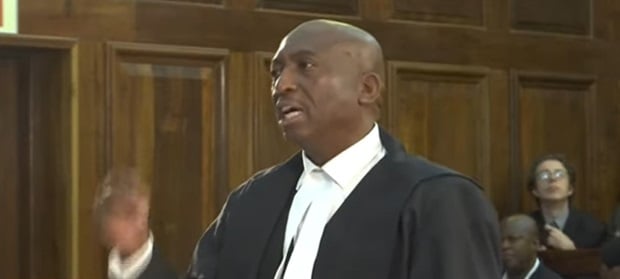
15 Aug 11:01
Plasket says Matojane’s order that Zuma must return to jail would be a natural consequence of a finding that he was unlawfully granted medical parole and suggests that this is “uncontroversial”.
But both he and Dambuza raise questions about the second part of that order: that the time already spent by Zuma on medical parole should not count as part of his sentence.
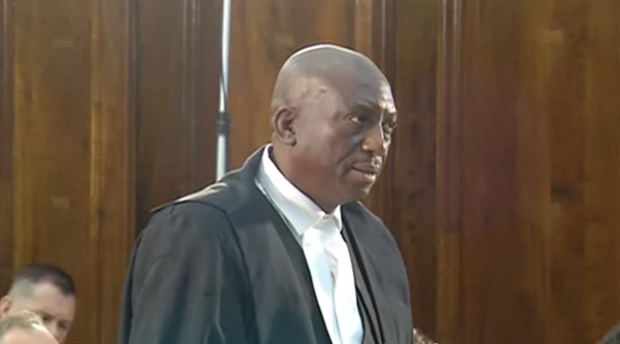
15 Aug 10:56
Dambuza now asks Mphahlele what the point of establishing the medical parole advisory board was and asks why the legislature would “go to all that trouble” of establishing a body of 10 to 12 doctors to evaluate the medical condition of inmates who were applying for medical parole.
Mphahlele contends that the Board is there to provide the National Commissioner with the widest possible input – but stresses that its report, which is compiled after examining all the submissions and medical records linked to an inmate, cannot be seen as more important than these single submissions.
– Karyn Maughan
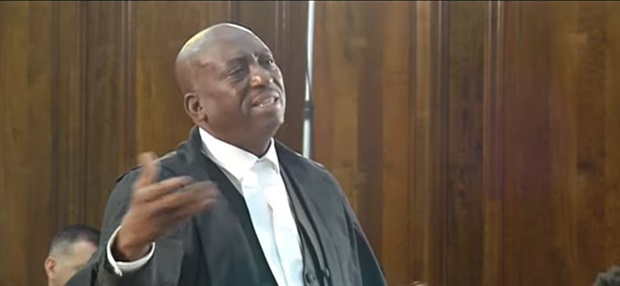
15 Aug 10:51
Comment |
While it appears that the SCA is not convinced that Zuma was lawfully granted medical parole, Matojane’s order that the time spent by the former president on medical parole should not count as part of his sentence is far more vulnerable to legal attack.
Zuma’s sentence ends in October, meaning that if the SCA overturns this aspect of the Matojane ruling, there is almost no possibility that he will return to prison.
– Karyn Maughan
15 Aug 10:48
The Department of Correctional Services has previously contended there was “no evidence” that Zuma illegally influenced Fraser into granting him medical parole – and insisted that the former president’s release was lawful.
Lawyers for the department argue that Gauteng High Court in Pretoria Judge Elias Matojane’s ruling that Zuma’s medical parole should be revoked and he should return to prison, without the months he’d spent on medical parole counting as part of his sentence, would result in a “complete travesty of justice”.
“Zuma was not a party to the decision to grant him medical parole and there is no evidence that he in any way, illegally, influenced the National Commissioner [Fraser] in making the impugned decision,” they state in court papers filed at the Supreme Court of Appeal.
“It is quite inconceivable that a court in a constitutional dispensation would revoke an offender’s placement under community corrections and send him back to prison without considering the time already served under the community corrections system. This amounts to double-jeopardy and a complete travesty of justice.”
– Karyn Maughan
![<p>The Department of Correctional Services has previously contended there was "no evidence" that Zuma illegally influenced Fraser into granting him medical parole - and insisted that the former president’s release was lawful.</p><p>Lawyers for the department argue that Gauteng High Court in Pretoria Judge Elias Matojane's ruling that Zuma's medical parole should be revoked and he should return to prison, without the months he'd spent on medical parole counting as part of his sentence, would result in a "complete travesty of justice".</p><p>"Zuma was not a party to the decision to grant him medical parole and there is no evidence that he in any way, illegally, influenced the National Commissioner [Fraser] in making the impugned decision," they state in court papers filed at the Supreme Court of Appeal.</p><p>"It is quite inconceivable that a court in a constitutional dispensation would revoke an offender's placement under community corrections and send him back to prison without considering the time already served under the community corrections system. This amounts to double-jeopardy and a complete travesty of justice."</p><p>- Karyn Maughan </p>](https://cdn.24.co.za/files/Cms/General/d/3664/91c9cc234ad4410e8f279a8f1d926673.jpg)
15 Aug 10:42
Dambuza tells Mphahlele that the correctional services department cannot pick and choose what parts of the medical parole application form – filled out by Mafa – it focuses on.
She suggests that the form itself does not make sense.
– Karyn Maughan
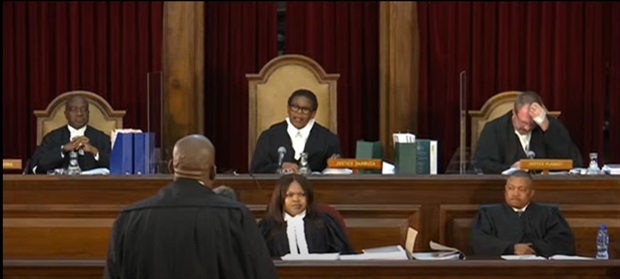
15 Aug 10:38
Mabindla-Boqwana backs Plasket up on this last submission – and says that there is no information before the court about what illness Zuma is actually suffering from – and lacks a categoric statement that Zuma suffers from a terminal illness.
– Karyn Maughan
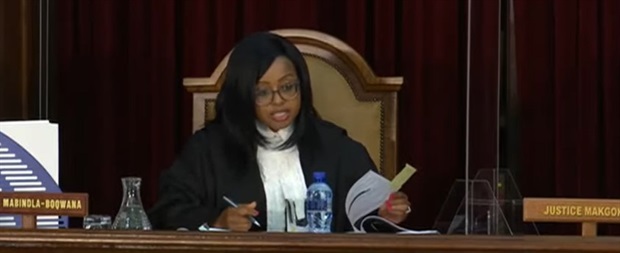
15 Aug 10:37
Ardent Zuma supporter Carl Niehaus told the SABC earlier on Monday morning outside court that the justice system needs to show its mettle and that it was correct to grant Zuma medical parole.
Niehaus continued to rail against the Constitutional Court’s sentence of Zuma last year.
He said the DA and Helen Suzman Foundation, who brought the application to revoke Zuma’s medical parole, are engaging in “silly politics”.
“This is a nonsense case; it should be thrown out of court. President Zuma is entitled to the parole that he received, and Arthur Fraser was correct in granting that parole to him,” Niehaus told the SABC.
– Jan Gerber
15 Aug 10:35
Plasket now contends that Fraser never explicitly stated that Zuma suffered from a terminal illness.
He says the record supplied to the parties in the case “deals with everything instead of the core issue”.
– Karyn Maughan
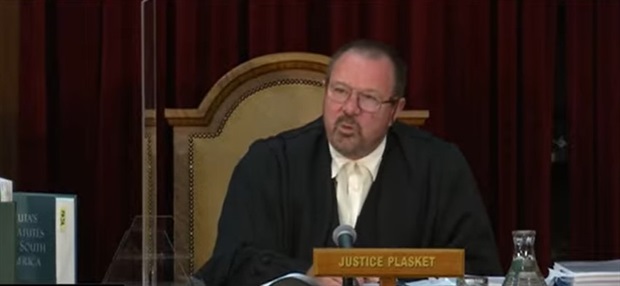
15 Aug 10:30
Dambuza says it is crucial for the SCA to understand how Fraser evaluated the medical reports that came before him in evaluating the rationality of his decision.
Goosen adds that the absence of a full record in this case (because of Zuma’s insistence that his medical records must not be fully disclosed to the court, even on a basis that prevented their public disclosure) may mean that “the appeal cannot succeed” – because the court cannot find that Fraser’s decision was rational.
Plasket supports this contention and says that Fraser “now has a great deal of difficulty” in justifying his decision. It is not good enough for Fraser to say “trust me”, Plasket adds.
– Karyn Maughan
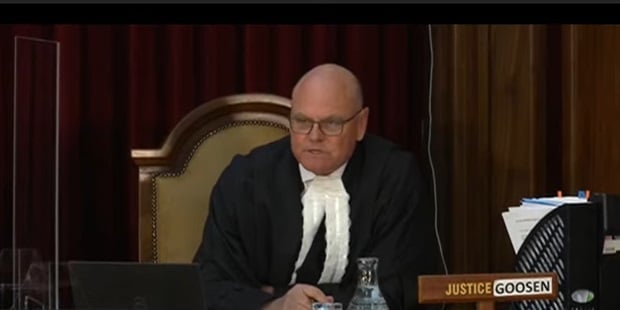
15 Aug 10:22
Dambuza says it is her impression that the medical parole board was set up in 2012, in the wake of Zuma’s former financial advisor Schabir Shaik being released on medical parole because of a “terminal illness” that later saw him playing golf in Durban, to “beef up” the medical parole process.
Mphahlele says this is not the case. What is clear is this: this appeal may prove to be pivotal in determining just how pivotal the board’s recommendations are to whether medical parole can be granted.
– Karyn Maughan
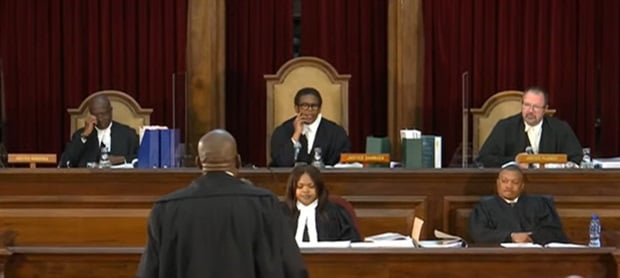
15 Aug 10:21
DA leader John Steenhuisen, who is at the SCA in Bloemfontein, said in a statement the hearing “will test whether, in a post-Zondo South Africa, there is genuine appetite to demonstrate equality before the law”.
Steenhuisen is adamant Arthur Fraser’s decision to grant medical parole was unlawful, as “there was no rational basis for the granting of medical parole to a man who is neither terminally ill nor physically incapacitated”.
“One of the fundamental tenets of our democracy is the principle of equality before the law. It should not matter whether you are the president, a former president or an ordinary citizen of this country – the law must view and treat you in the same way,” said Steenhuisen.
“For this to happen, it is critical that the NPA demonstrate that they have the spine to pursue prosecutions against the most powerful figures in society, that our investigative bodies have the freedom and independence to do their jobs, and that our judiciary is prepared to hold former presidents to the same standard of the law. Decisions like the granting of medical parole cannot be allowed to become a convenient back door for errant ANC cadres and their crooked cronies.”
– Jan Gerber
15 Aug 10:17
Dambuza is questioning the role played by the medical parole advisory board, which is empowered to consider ALL the medical reports submitted as part of an inmate’s medical parolee application.
– Karyn Maughan
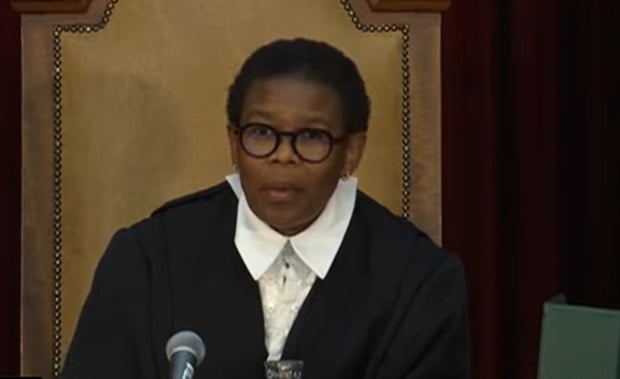
15 Aug 10:12
Plasket – an expert on adminstrative law – raises a key issue here: how can Fraser justify his decision to ignore the findings of the medical parole board and prefer the submissions of certain doctors (whose submissions were considered by the board) over the finding of the board?
Fraser needs to justify that decision, Plasket says – while acknowledging that Fraser may be hamstrung in doing this by the fact that he could not disclose the details of all the reports he considered.
– Karyn Maughan
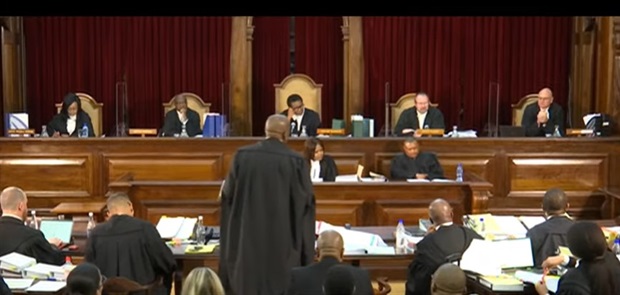
15 Aug 10:09
Correctional services authorities have been at pains to point out that Section 75(7)(a) of the Correctional Services Act 111 of 1998, gave Fraser the power to grant medical parole “to a sentenced offender serving a sentence of incarceration for 24 months or less”.
But he would typically do so on the recommendation of the medical parole advisory board, which is tasked with establishing whether – under the provisions of the Correctional Services Act – an inmate is “terminally ill and physically incapacitated” or “suffering from an illness that severely limits their daily activity or self-care”.
The medical parole advisory board found that Zuma did not qualify for medical parole under the Act.
– Karyn Maughan
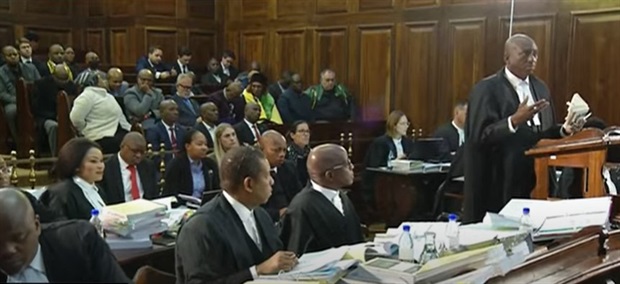
15 Aug 10:05
Zuma had been sentenced to 15 months behind bars after he defied the Constitutional Court’s order that he appear before the State Capture Inquiry and answer non-incriminating questions and, in response to that ruling, had levelled a series of unsubstantiated attacks against the apex court’s justices, who he compared to the apartheid regime.
He was released on medical parole by Fraser just two months into that sentence, after being hospitalised for an undisclosed medical condition.
That decision was then successfully challenged by the Democratic Alliance, Helen Suzman Foundation and AfriForum.
– Karyn Maughan
15 Aug 10:03
In heads of argument, lawyers for the correctional services department are adamant that there was evidence before Fraser that Zuma was, in fact, terminally ill – and point to a medical parole application form filled in by a Mafa, one of his military doctors.
Mafa had answered “yes” to a question about whether Zuma was “suffering from a terminal disease or condition that is chronic and progressive which has deteriorated significantly” and confirmed that he was “unable to perform daily activities and self-care and is under full time comprehensive medical care of his medical team”.
According to the department’s lawyers: “All the diagnostic medical findings that were made by Dr Mafa fall within the mandatory legal requirements of section 79(1)(a) of the [Correctional Services] Act, namely that the offender must be suffering from a terminal disease or condition or rendered physically incapacitated.”
– Karyn Maughan
15 Aug 10:02
There has been some discussion about the medical parole application made by Zuma’s doctor, a Dr Mafa, which the department appears to be relying on very heavily to contend that the former president’s medical parole was lawfully granted.
– Karyn Maughan
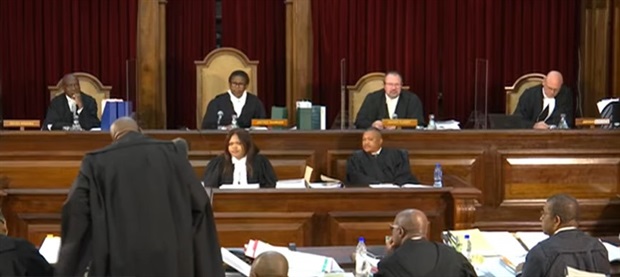
15 Aug 09:55
Advocate Mantlheng Mphahlele now argues for the National Commissioner of Correctional Services – and is almost immediately confronted by a key question by Judge Plasket: did then prisons boss Arthur Fraser exercise his power to grant medical parole in a “regular” way?
Dambuza supports this – and says the question is whether power was exercised in a proper manner.
– Karyn Maughan
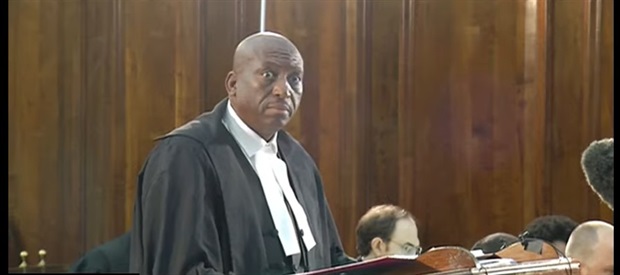
15 Aug 09:42
DA leader John Steenhuisen is in court this morning – and former president Zuma has a number of supporters in the courtroom as well: Carl Niehaus, Mzwanele Manyi and others have crowded the court benches.
– Karyn Maughan
Click below to read full stream


